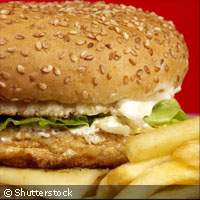Study reveals worrying state of European teens' health
Over a fifth of European teenagers are overweight or obese, and few adolescents follow dietary advice on fruit and vegetable intake. These are just two of the findings of the EU-funded HELENA ('Healthy lifestyle in Europe by nutrition in adolescence') project. The teenage years are a crucial period for establishing lifelong habits, healthy or otherwise. The number of overweight or obese children in the EU is rising by around 400,000 per year, and if these children carry their bad habits over into adulthood, they will place themselves at risk of a number of health problems such as heart disease, diabetes and respiratory disease. The aim of the HELENA project was to investigate the lifestyle habits of 13 to 17 year olds in ten European countries (Austria, Belgium, France, Germany, Greece, Hungary, Italy, Spain, Sweden and the UK). The project partners presented their initial findings at a symposium in Granada, Spain on 21 and 22 April. 'HELENA study provides us with the most complete picture ever gathered in Europe about the nutritional status and behaviour as well as the fitness and physical activity patterns of 3,000 adolescents from 13 to 17 years old,' explained Project Coordinator Professor Luis Moreno of the University of Zaragoza in Spain. 'It is the first time we will have a reliable picture of the situation, analysed using a common methodology across the ten EU countries. This information will enable us to develop effective recommendations for the future.' The results revealed that among adolescents in the countries studied, approximately 27% of males and 20% of females are either overweight or obese. One reason for this could be lack of exercise; only 58% of boys and a mere 31% of girls accumulated 60 minutes of 'moderate to vigorous' physical activity per day. Furthermore, while 62% of girls showed a good knowledge of nutritional principles, it seems that few put this knowledge into practice. One of the project's most startling findings was that just 13% of teens eat at least 200g of vegetables per day, and 16% eat at least two pieces of fruit per day. Meanwhile for half the teens studied, fat accounted for more than 35% of their total energy intake. However, the HELENA project did not just focus on the problem; it also designed tools to promote healthy lifestyles, and tested the impact of these on teenagers' behaviour. Studies showed that three-month, computer based interventions resulted in an improved diet (notably in terms of water, fibre and vegetable consumption) as well as physical activity behaviours. The project partners are also working closely with businesses to create healthy snacks which will appeal to teenagers. The resulting cereal bar, low fat hamburger and wholegrain cereal drink will be shared with the food industry.



